- AdP
- SUSTAINABILITY
- Best practices
Operational management and efficiency
Operational management and efficiency
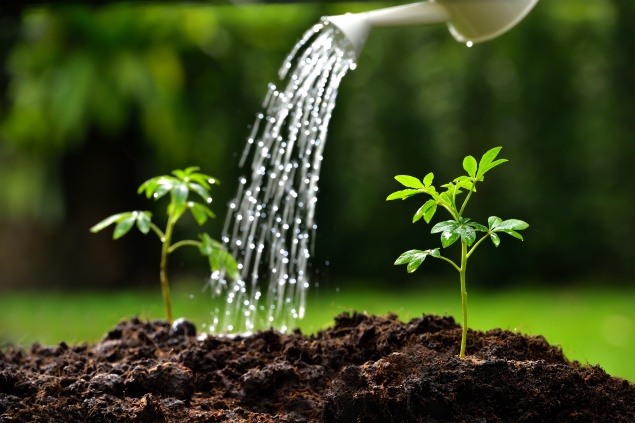
Managing and monitoring losses from the distribution network losses
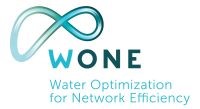
A percentage of the water that is transported and distributed by the companies managing the water supply system gets lost prior to reaching the final consumer whether through leaks, ruptures or spillages. EPAL, responsible for the Lisbon water supply, has developed a monitoring system – WONE - Water Optimization for Network Efficiency –, which enables the swift location of these types of situation and thereby control and reduce the levels of losses of water from the network.
WONE is a system that, based on the implementation of zones for monitoring and controlling (ZMCs) and analysing the respective flow and pressure data, enables the combination of processes and the integration of information relevant to appropriately managing the network and controlling the loss of water.
The results of this system highlight that:
- bringing forward the detection of leaks and significantly reducing losses
- better planning of repair operations completed at lower cost
- greater efficiency in water utilisation
- reductions in the consumption of energy, usage of reagents and CO2 emissions associated with a corresponding shrinkage in the carbon footprint.
The implementation of WONE, within a logic of actively controlling for leaks, enabled a reduction in the level of unbilled water in the Lisbon distribution network, down from 23.5%, in 2005 to around 8% in 2015, thus positioning EPAL in the leading group of the world’s most efficient water supply system managers.
The versatile and global character of WONE enables its application and utilisation by any water supply management entity seeking to boost the efficiency of their distribution network as a means of saving not only their water resources but also energy and the corresponding financial costs.
For further information, please click here.
Recycling and reutilising wastewater
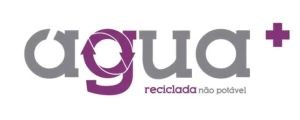
Increasing the circularity in water usage and deepening hydric efficiency take on additional relevance within the current context of climate change, constituting a best practice for water management and especially suitable for dealing with the rise in frequency and intensity of periods of drought and water shortage.
In addition to being a measure for adapting to climate change, the utilisation of appropriately treated wastewaters incorporates the challenges of the circular economy into managing the urban water cycle, generating significant environmental, social and economic benefits.
The wastewaters treated at the infrastructures belonging to companies in the Águas de Portugal Group have served for both in-house purposes as well as utilisation by third parties in various different processes and installations.
For internal group usages, it has become a common practice to use treated wastewater for washing the floors of installations as well as for equipment, axles and treatment components; unblocking pumps; feeding deodorisation systems; purifying biogas; preparing reagents; and in the flushing mechanisms of sanitary installations.
The usage by third parties ranges from municipalities in major urban centres, for the washing of streets and containers for example, to irrigating golf courses and filling refrigeration cooling systems, among others.
This provides the context for launching the Water Factories, a new concept that reinforces the industrial nature of the work carried out at wastewater treatment plants with the water approached as a raw material correspondingly endowed with resources for using, reusing, recycling and enhancing.
Águas do Tejo Atlântico has pioneered the incorporation of this concept, bringing about progress in wastewater treatment processes through applying a new paradigm in which extracting the maximum value from such resources is the outstanding priority.
Find out more about água+ here.
Innovative water production for reutilisation in agriculture
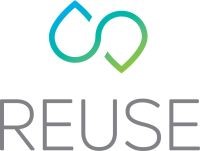
Fostering the production and utilisation of water for reutilisation (WfR) for irrigation activities in the Alentejo region, where there are generally low levels of precipitation coupled with high levels of solar exposure and in conjunction with intense levels of agriculture, coupled with a worrying advance in the effects of climate change, constitute the key drivers behind the REUSE objectives.
REUSE seeks to expand the utilisation of WfR in agriculture by taking advantage of the development of low cost technology incorporating recourse to renewable energy, naturally forming dams in combination with the small scale of regional wastewater treatment plants, their flow profiles, levels of solar exposure and periods of irrigation within the framework of enhancing the value of water from diverse perspectives (availability, micronutrients), the new Fit for Purpose approach and the growing awareness in the agricultural sector of the need for water efficiency and the need to diversify their sources.
This remains under an experimental regime with the production of WfR through the solar disinfection of wastewaters treated by the Beja plant for subsequent utilisation by a regional farmer for irrigating a pomegranate orchard with the objective of studying the corresponding impacts on the plants, soil and water.
REUSE is a project financed by the Environmental Fund resulting from a partnership between AdP – Águas de Portugal, AgdA – Águas Públicas do Alentejo , EDIA – the Alqueva Dam Infrastructure Development Company, ISA – the Higher Institute of Agronomy, EFACEC and COTR – the Operational Centre of Irrigation Technology.
The project serves as a case study for the application of Decree Law no. 119/2019, of 21 August stipulating the regime for the production and utilisation of WfR and the risk evaluation methodology presented in the Guide for Reutilisation issued by the Portuguese Environment Agency.
Find out more here.
Developing solutions for better consumption management by the final consumer
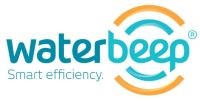
EPAL designed and developed Waterbeep as a client support service that enables them to monitor the peaks and troughs in their respective water consumption and thereby contribute towards greater efficiency in the utilisation of this resource.
WaterBeep presents four different modes with rising levels of information detail. At the most basic and always free of charge level, this enables consultation of the billed consumption, calculating average daily consumption and providing a comparison with the levels typical for Lisbon as well as communicating metre readings.
Clients may also access a warning service that provides due notification whenever the water consumption significantly differs from the usual pattern, enabling the identification of any out of the ordinary situations such as unauthorised or excessive consumption, including potential leakages and thus minimising the associated damage.
For further information about Waterbeep, please click here.
